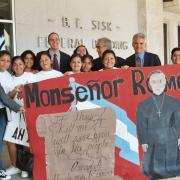Summary available
Thank you for joining Jasmina Brankovic and Sufiya Bray of the Centre for the Study of Violence and Reconciliation (CSVR), Galuh Wandita and Patrick Burgess of the Asia Justice and Rights (AJAR) and the New Tactics online community for this discussion on Transitional Justice in Practice that took place on May 12 to May 23, 2014.
Over time, the action and concept of transitional justice has evolved into a method used to promote and implement democracy and sustainable peace. Two examples of transitional justice are truth commissions and institutional reform, however individual acts and processes of transitional justice are utilized differently based on the approaches, countries and the cultural context.


 The Center for Justice and Accountability (CJA) represents survivors using the Alien Tort Claims Act (ATCA) and the Torture Victim Protection Act, which gives both U.S. citizens and noncitizens alike the right to sue human rights abusers who live in or visit the United States. CJA has effectively used these acts to help end the possibility of abusers using the U.S. as a safe haven, to assist survivors in gaining reparations, and to break the silence that has enabled abusers to live in impunity.
The Center for Justice and Accountability (CJA) represents survivors using the Alien Tort Claims Act (ATCA) and the Torture Victim Protection Act, which gives both U.S. citizens and noncitizens alike the right to sue human rights abusers who live in or visit the United States. CJA has effectively used these acts to help end the possibility of abusers using the U.S. as a safe haven, to assist survivors in gaining reparations, and to break the silence that has enabled abusers to live in impunity. 